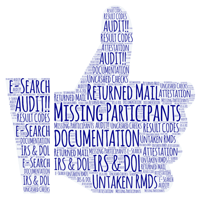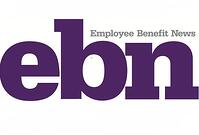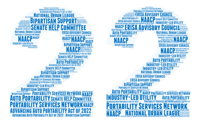Consolidation Corner
-
Blog
- 401k Cash Outs
- 401k Consolidation
- 401k Plan Termination
- America's Mobile Workforce
- Assisted Roll-in
- Auto Enrollment
- Auto Portability
- Auto Portability Simulation
- Automatic Roll-In
- Automatic Rollover
- Automatic Rollovers
- Boston Research Technologies
- CARES act
- Common Mistakes
- DIY Roll-In
- DOL Advisory Opinion
- EBRI
- Employee Benefit News
- ERISA Advisory Council
- Financial Services Roundtable
- Financial Wellness
- How-To
- In-Plan Consolidation
- Leakage
- Lifetime Plan Participation
- Lost Participants
- Managed Portability
- Mandatory Distributions
- MarketWatch
- Missing Participant IRA
- Missing Participants
- National Retirement Savings Cash Out Clock
- Participant Transition Management
- PLANSPONSOR
- Portability Services Network
- PSCA
- Public Policy
- RCH Services
- Retirement Income
- Retirement Plan Portability
- retirement research
- Retirement Savings Consolidation
- Retirement Savings Portability
- Roll-In
- Safe Harbor IRA
- Saver's Match
- Security
- Small Accounts
- Stale Dated Checks
- Synthetic Tenure
- Uncashed Check Services
- Uncashed Distribution Checks
- Video
- Webcast
- What is a Missing Participant?
Consolidation Corner Blog
Consolidation Corner is the Retirement Clearinghouse (RCH) blog, and features the latest articles and bylines from our executives, addressing important retirement savings portability topics.
Five Tips for Documenting Missing Participant Searches
 If a tree falls in the forest, does it make a sound? Opinions are split on this weighty philosophical matter, but a more-definitive answer to another question may surprise you.
If a tree falls in the forest, does it make a sound? Opinions are split on this weighty philosophical matter, but a more-definitive answer to another question may surprise you.
If a search for a missing participant is not properly documented, is it a diligent search? To regulatory authorities who may scrutinize a plan sponsor’s search efforts, the answer is decidedly “no.” For a regulator to consider a search to be diligent, it must be well-documented, and to do otherwise can result in audits, penalties and increased fiduciary risk.
As Time Passes, The Gains Become Harder
 Anyone of sufficient age who exercises regularly knows that gains become harder as you grow older. While improvements are possible, increased effort doesn’t always work. Instead, older fitness aficionados dial in the quality and efficiency of their workouts to experience continued gains.
Anyone of sufficient age who exercises regularly knows that gains become harder as you grow older. While improvements are possible, increased effort doesn’t always work. Instead, older fitness aficionados dial in the quality and efficiency of their workouts to experience continued gains.
Highway Through the 'Danger Zone'
 The 401(k) cashout leakage problem is once again in the news, with the publication of an alarming study by academics, as well as new data from Fidelity Investments revealing a cashout leakage ‘danger zone’ facing participants between the ages of 30-39.
The 401(k) cashout leakage problem is once again in the news, with the publication of an alarming study by academics, as well as new data from Fidelity Investments revealing a cashout leakage ‘danger zone’ facing participants between the ages of 30-39.
These studies, combined with the mounting weight of empirical evidence gathering for more than a decade, confirm that 401(k) cashout leakage is a huge, persistent problem.
Financial Literacy Can Help Close the Minority Wealth Gap for Retirement Savings
 Knowledge is power, as the saying goes. As Americans observe another Financial Literacy Month, members of the retirement services industry have an opportunity to pause and think about how they can help empower more people to achieve a financially secure retirement.
Knowledge is power, as the saying goes. As Americans observe another Financial Literacy Month, members of the retirement services industry have an opportunity to pause and think about how they can help empower more people to achieve a financially secure retirement.
A Renaissance for Auto Enrollment
 After making great strides following the Pension Protection Act of 2006 (PPA), adoption of auto enrollment has continued to build slowly but steadily in recent years. According to DOL Form 5500 data, by 2021 the feature has been adopted by plan sponsors housing almost 50% of total 401(k) participant accounts.
After making great strides following the Pension Protection Act of 2006 (PPA), adoption of auto enrollment has continued to build slowly but steadily in recent years. According to DOL Form 5500 data, by 2021 the feature has been adopted by plan sponsors housing almost 50% of total 401(k) participant accounts.
The Important Task of Determining Participants’ Life Status
 Determining retirement plan participants’ life status is an important, albeit uncomfortable task for plan sponsors. Whereas plan participants are typically more concerned about securing a comfortable retirement income that lasts for life, plan sponsors must deal with deceased participants who will leave behind residual plan benefits requiring proper administration.
Determining retirement plan participants’ life status is an important, albeit uncomfortable task for plan sponsors. Whereas plan participants are typically more concerned about securing a comfortable retirement income that lasts for life, plan sponsors must deal with deceased participants who will leave behind residual plan benefits requiring proper administration.
Dialing Up the Intensity of Missing Participant Searches
 When it comes to locating missing retirement plan participants, there’s no substitute for an effective electronic, or “e-search.” However, retirement plan sponsors will inevitably encounter scenarios where periodic e-searches alone will not suffice.
When it comes to locating missing retirement plan participants, there’s no substitute for an effective electronic, or “e-search.” However, retirement plan sponsors will inevitably encounter scenarios where periodic e-searches alone will not suffice.
The Big Shift Towards Auto Portability
 To quote Ferris Bueller: “Life moves pretty fast. If you don't stop and look around once in a while, you could miss it.”
To quote Ferris Bueller: “Life moves pretty fast. If you don't stop and look around once in a while, you could miss it.”
For those accustomed to a glacial pace of change in the world of retirement, you could be forgiven if you’ve missed two very recent, tectonic shifts toward the system-wide adoption of auto portability, the new default plan feature that automatically moves small balance retirement savings forward as participants change employers, saving them time and money, while dramatically reducing cashout leakage.
A No-Brainer Benefit that Advisors can Bring to Plan-Sponsor Clients
 The passage of the Securing a Strong Retirement Act of 2022 (known as “SECURE 2.0”) reinforces the bipartisan commitment in Congress to helping Americans save more for retirement. Signed into law as part of a $1.7 trillion omnibus spending bill signed by President Biden on December 29, the legislation includes a variety of provisions, including the expansion of automatic enrollment in 401(k) and 403(b) plans. Fortuitously, SECURE 2.0 measures related to auto portability come shortly after the launch of an industry initiative to make auto portability—a technology solution that can operate in tandem with auto enrollment to optimize plan participants’ retirement outcomes—much more accessible to plan sponsors across the country.
The passage of the Securing a Strong Retirement Act of 2022 (known as “SECURE 2.0”) reinforces the bipartisan commitment in Congress to helping Americans save more for retirement. Signed into law as part of a $1.7 trillion omnibus spending bill signed by President Biden on December 29, the legislation includes a variety of provisions, including the expansion of automatic enrollment in 401(k) and 403(b) plans. Fortuitously, SECURE 2.0 measures related to auto portability come shortly after the launch of an industry initiative to make auto portability—a technology solution that can operate in tandem with auto enrollment to optimize plan participants’ retirement outcomes—much more accessible to plan sponsors across the country.
2022: A Most Consequential Year for Retirement Savings Portability
Last year at this time, our firm predicted that 2022 would be a pivotal year for reti rement savings portability. It turns out we were right, but we confess to being pleasantly surprised at just how consequential (and positive) the year has been, and it’s not over yet.
rement savings portability. It turns out we were right, but we confess to being pleasantly surprised at just how consequential (and positive) the year has been, and it’s not over yet.
Here’s a rundown of key events during 2022 that have helped to positively shape the future of retirement savings portability:
-
Blog
- 401k Cash Outs
- 401k Consolidation
- 401k Plan Termination
- America's Mobile Workforce
- Assisted Roll-in
- Auto Enrollment
- Auto Portability
- Auto Portability Simulation
- Automatic Roll-In
- Automatic Rollover
- Automatic Rollovers
- Boston Research Technologies
- CARES act
- Common Mistakes
- DIY Roll-In
- DOL Advisory Opinion
- EBRI
- Employee Benefit News
- ERISA Advisory Council
- Financial Services Roundtable
- Financial Wellness
- How-To
- In-Plan Consolidation
- Leakage
- Lifetime Plan Participation
- Lost Participants
- Managed Portability
- Mandatory Distributions
- MarketWatch
- Missing Participant IRA
- Missing Participants
- National Retirement Savings Cash Out Clock
- Participant Transition Management
- PLANSPONSOR
- Portability Services Network
- PSCA
- Public Policy
- RCH Services
- Retirement Income
- Retirement Plan Portability
- retirement research
- Retirement Savings Consolidation
- Retirement Savings Portability
- Roll-In
- Safe Harbor IRA
- Saver's Match
- Security
- Small Accounts
- Stale Dated Checks
- Synthetic Tenure
- Uncashed Check Services
- Uncashed Distribution Checks
- Video
- Webcast
- What is a Missing Participant?
